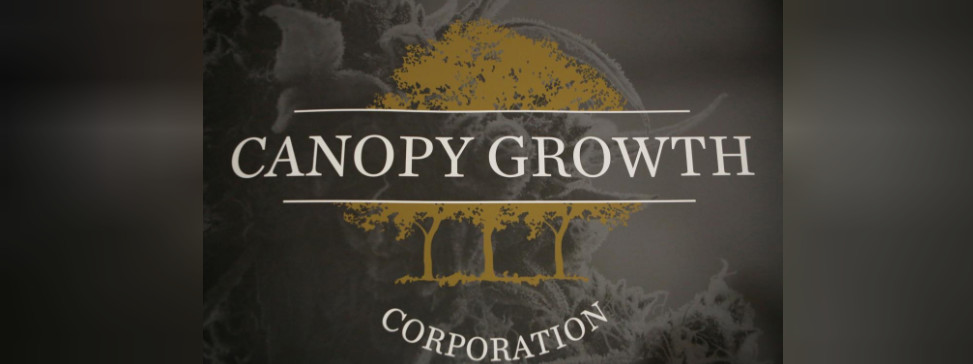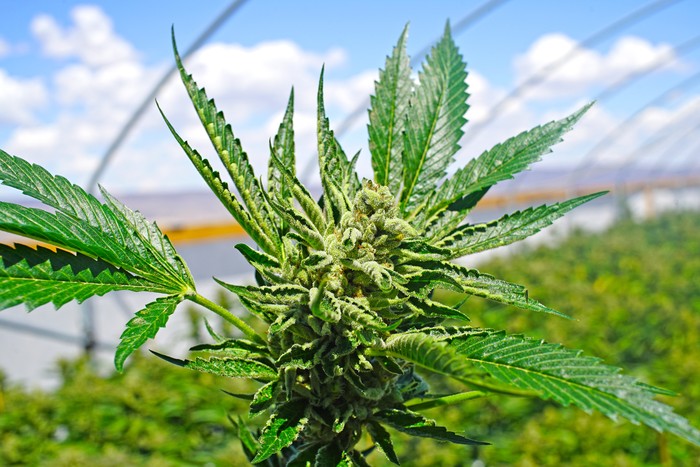Now that the dust has settled after Canada’s big announcement last week regarding the legalization bill for cannabis, what do the experts think?
The news of the bill affects anyone within an arm’s length of the marijuana industry, and the reviews from the general community have been mixed. interviewed some heavy hitters to get their take on the future of Canadian.
We begin with the president of the largest cannabis producer in the world, Mark Zekulin from Canopy Growth Corporation.
“I think it’s a great day overall. Not surprisingly, there’s a big focus on drug impaired driving and making sure that we have the right tools in place, that’s a very positive step.” Zekulin added that he is also happy that cultivation will continue to be regulated at the federal level.
There’s a good chance that Canopy will have some more competition coming, due to Health Canada’s decision to expedite the licensing process and allow smaller producers to join the licensed cultivation industry. “I think that’s great. The market is going to get a lot bigger. We welcome as many producers as makes sense in a controlled, regulated environment.”
Considering distribution methods across the country, Zekulin said that it’s possible Tweed could have dedicated storefronts selling their products wherever the law allows, as different provinces are going to sell pot in various ways. “Obviously, it depends on what each province decides. Some may choose to run their own retail stores and some may allow for private distribution channels,” said Zekulin.
One of the big, looming uncertainties on the Canadian cannabis front is the edible market. The government has made it clear that edibles will be allowed at some point, but the regulations for these products have been postponed for the time being. “There’s a demand for edibles [and]what you don’t put in the legal system will end up in an illegal system,” said Zekulin.
The announcement of the bill also pushed the plain packaging recommendation forward, which is something LPs like Canopy have lobbied against. “The government’s principles are all things that make sense. You don’t want it to be overly promotional or appealing to children. That needs a balance with the need to deliver information to help describe the difference between this product and another. We will certainly continue to be involved in that conversation,” added Zekulin.
From the corporate LP standpoint, the legalization announcement appears to have been positive. But what about the craft cannabis producers, or more specifically, the ones currently considered illegal in the eyes of the feds?
Lisa Campbell runs the very popular, and semi-underground, Green Market.
“It’s exciting for Canadians to have legalization so close. The noncommercial aspects of the bill are great, such as being able to possess just over an ounce and to be able to share. But for the existing industry, it’s a little bit nerve-racking in that it’s only going to include licensed producers,” said Campbell.
Health Canada lists a total of 43 Licensed Producers across the country.
Campbell primarily operates her farmers market in Ontario, which has been one of the most contentious battlegrounds for dispensary legality in the country. Despite that fact, she still has hope that some sort of private retail will be allowed for cannabis sales as opposed to the unpopular suggestion of selling pot at government-controlled liquor stores.
“Dispensaries as we know them are under risk. As we saw in the press conference, if you’re selling cannabis outside of the federal licensed producer system, that’s considered black market. The potential that we have is for private storefronts like multi-channel retail which could include private stores, government stores, it could also include mail-order,” said Campbell.
One of the aspects that Campbell is enthusiastic about is the announcement that edibles will be part of the legal framework once regulations have been determined. “We’re super excited about edibles being in the mix. Obviously, only licensed producers can produce those edibles, so for a lot of our craft cannabis brands, we’re going to be looking at transitioning into the new licensed producer system,” said Campbell.
One of the important points that Campbell wanted to stress was the need for craft cannabis, meaning the “mom and pop” style stores that have been targeted by authorities. “For businesses like [formerly the Emery’s] Cannabis Culture and other craft businesses, who basically built the foundation for legalization, you need to be able to include those businesses or there will always be a black market.”
Speaking of the Emerys, the announcement wouldn’t be official without hearing from the Princess of Pot herself. Jodie Emery has been on a rollercoaster as of late between her arrest at Pearson International with her husband Marc, to the bail-ordered conditions of having to give up Cannabis Culture. The two activists and their many years of risk taking for legalization are unequivocally responsible for cannabis legalization in Canada. Now that the bill has been introduced, asked for her thoughts on this landmark occasion:
This is not legalization, it’s prohibition 2.0. It’s very worrisome because it doesn’t address the actual reasons why marijuana is supposed to be legalized. It also introduces a number of new, harsh penalties that will see an expansion of unjust arrests and criminalization of people for cannabis.
The penalties that Emery is referring to are the 14 years in prison someone can get for sharing marijuana with a minor. That would include an 18-year-old sharing a joint with, for example, a 17-year-old sibling. “All of the young adults who are aged 17 to 20, are already disproportionately targeted by law enforcement, said Emery.”
A second point of concern for Emery is the significantly stricter impaired driving rules, which broaden police authority for random drug tests. “This is very scary because it means that every medical marijuana patient can lose their license, their car, and become a criminal. Right now in Canada, the officer needs to have reasonable suspicion, but the new legislation for driving removes that entirely. Now, officers do not even need to suspect you. They can pull you over and demand a mouth swab. This legalization is the most Orwellian twist that they could pull on us,” said Emery.
Even though it’s evident that Jodie Emery is not satisfied with the announcement, she recognizes from her decades of fighting prohibition that it is a start and these things are usually done in baby steps. “Incrementalism is the only way anything gets done. I look to Washington State, which started with the lowest police priority, then medical marijuana, then decriminalization, and finally legalization. This is always a tug of war, back and forth,” added Emery.
Like any first world democracy, announcements that affect the entire nation will always be met with a mixture of praise and discord. This particular announcement is over ninety years in the making; pair that with an over-authoritative and violent history, fueled by misinformation about cannabis and its “harms” to society, and there is bound to be friction at every level.
But that friction is driven by movement, and any movement on this once stagnated issue is perhaps, a very good thing.
credit:marijuana.com









